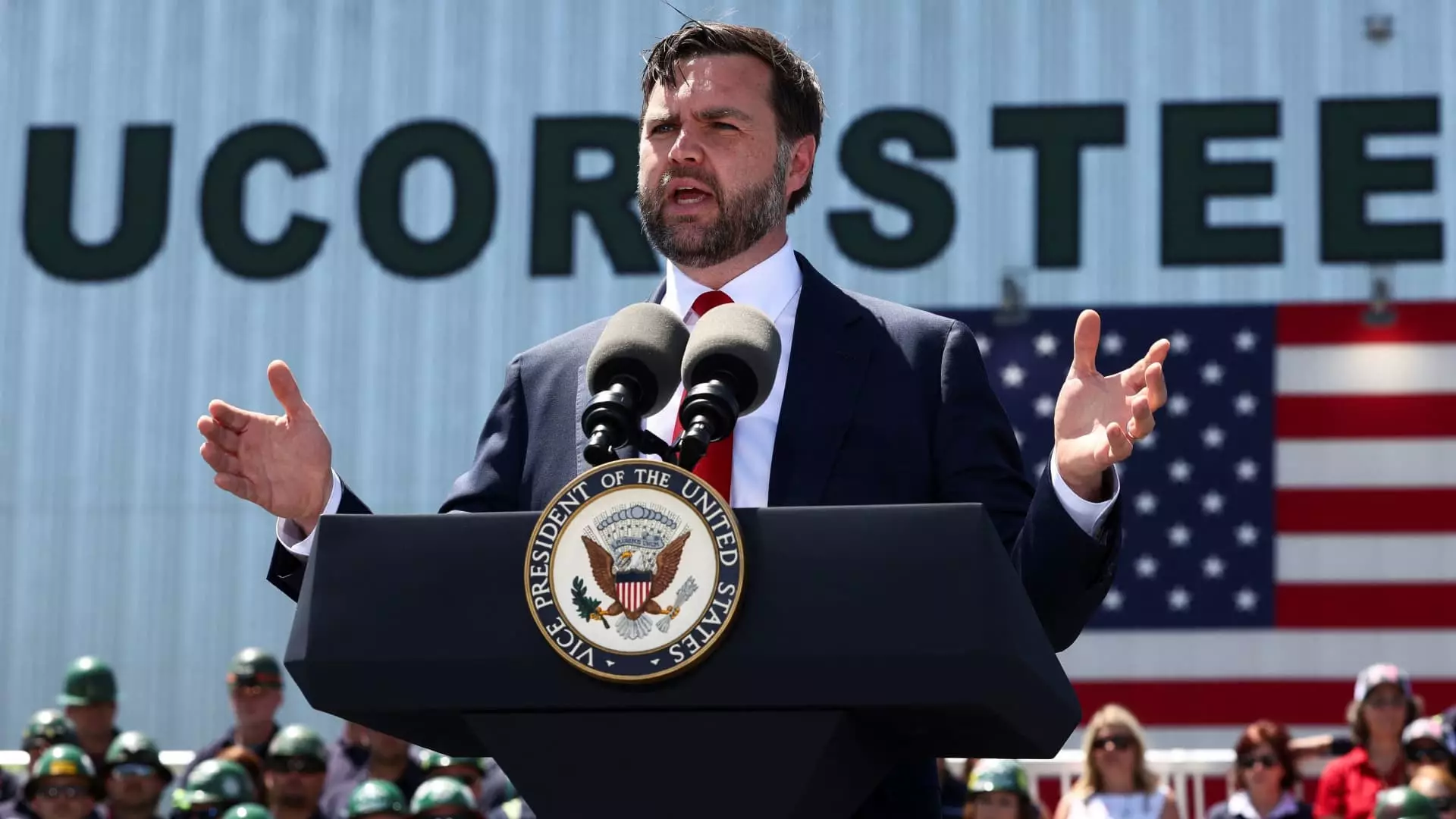President Donald Trump and Vice President JD Vance are maneuvering to challenge the Federal Reserve’s monetary policy, requesting a reduction in interest rates. Calling it “monetary malpractice,” Vance’s alignment with Trump raises severe concerns about the fiscal implications of their push. They are directing their frustrations at Chair Jerome Powell and the Federal Open Market Committee, which is responsible for the central bank’s interest rate policy. While lower interest rates can stimulate growth, the political motivations behind this demand are questionable. The duo’s fervent calls for action suggest a strategic move to bolster economic metrics for political gain ahead of upcoming elections, rather than genuine concern for long-term financial stability.
Inflation Data: A Double-Edged Sword
Recent reports from the Bureau of Labor Statistics reveal that inflation has only nudged upward by 0.1%, an increment that does not necessarily warrant drastic monetary adjustments. While an annual inflation rate of 2.4% stands above the Fed’s 2% target, what Trump and Vance often overlook is the potential cost of slashing interest rates too hastily. By ignoring the medium- and long-term ramifications of inflation, they engage in a reckless gambit, prioritizing immediate benefits over sustainable economic health. Their approach feeds into a dangerous narrative that economic indicators can be conveniently manipulated to serve political aspirations rather than rational monetary policy.
Pocketbook Politics: A Temporary Fix?
The call for a one-percentage-point cut in the federal funds rate echoes a classic political strategy: to make numbers look favorable in time for elections. It almost feels like a playbook borrowed from past administrations keen on jump-starting their popularity metrics by creating a façade of economic prosperity. A sharp reduction in interest rates may offer short-term relief, but the long-term risks of inflation running rampant could ultimately harm those very voters Trump and Vance aim to appease. This raises ethical concerns around economic stewardship; should politicians wield such economic weapons purely for electoral gain?
Market Sentiment: A Game of Expectations
Current market sentiments reflect skepticism about the feasibility of Trump’s wish to lower rates so aggressively. With traders indicating minimal probability of an imminent rate cut, the situation begs the question: Do the Trump and Vance administration truly understand the market’s complexities, or are they merely capitalizing on a moment of vulnerability? The signal from the CME Group suggests that economics is more about branding than a genuine understanding of fiscal policy. Yet, it is troubling to note that an administration would rally behind such populist rhetoric without considering the real-world consequences.
The Road Ahead: Economic Recklessness or Pragmatic Risk?
With an interest rate decision looming from the Federal Reserve, the administration’s bold stance inevitably places pressure on the central bank. However, it remains crucial that policymakers act independently, guided by empirical evidence rather than political expediency. Ensuring economic stability should not become a pawn in the partisan game, and leaders must remember that the stakes extend far beyond immediate economic buoyancy. As they wield their influence, their cavalier attitude toward the complexities of inflation and interest rate dynamics could usher in a troubling chapter of economic recklessness. This moment calls for prudence, not populism.

